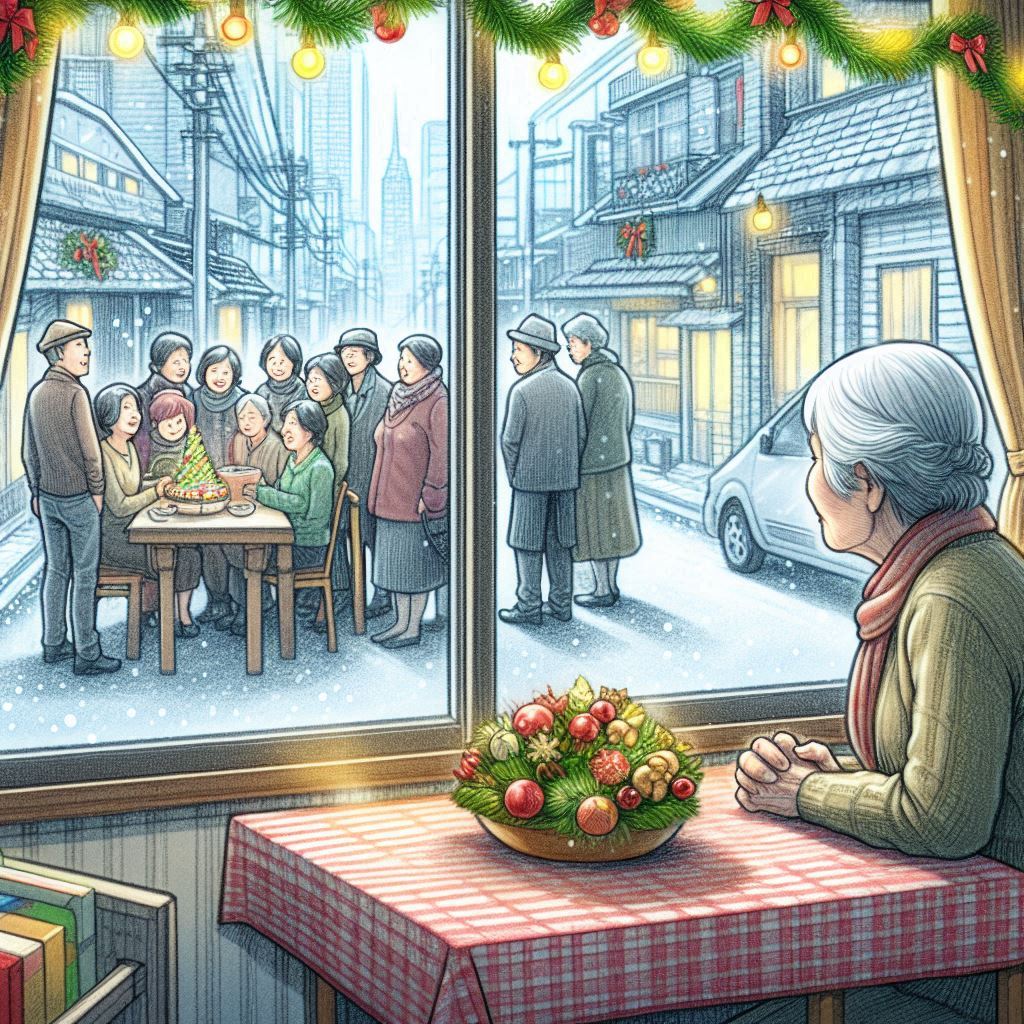
How the Holiday Season Affects the Mental Health of Seniors
The holiday season, filled with festivity and gatherings, can also be a difficult time for many seniors. It’s a season that can bring about bittersweet emotions—joy from memories of past celebrations, yet sadness as they confront present realities. Seniors may experience unique challenges, such as coping with the absence of family, the recent passing of a loved one, or limitations in mobility that make it harder to fully participate in holiday activities. Here’s a look at how these factors impact the mental health of seniors during the holiday season, along with practical strategies to help bring joy, connection, and comfort during this time.
The Emotional Challenges of the Holiday Season
The holidays can trigger strong emotional responses for anyone, but these are often heightened for seniors due to certain life circumstances. Here’s a closer look at some common scenarios and how each may impact the well-being of older adults.
Having No Family or Distant Family
The sense of isolation that comes from lacking nearby family can weigh heavily on seniors. Often, holiday traditions revolve around loved ones, from sharing meals to exchanging gifts. Without family around, seniors may feel excluded from the joy that others are experiencing. Social isolation is a significant mental health risk for seniors, associated with an increased likelihood of depression, anxiety, and cognitive decline. Moreover, a lack of regular companionship can erode self-worth, leaving many seniors feeling unimportant or forgotten.
Ways To Deal With The Holidays With No Family
-
Volunteer at a local group or organization that needs volunteers during the holidays
-
Look for senior centers, clubs, or online communities where you can connect with people who share your interests
-
Schedule phone calls, video chats, or in-person visits with friends and neighbors
-
Learn a new skill or rediscover an old passion
-
Take a walk in a park or simply enjoy the fresh air in your backyard
Living Far from Family
For seniors whose family members live far away, it can be difficult to maintain a sense of closeness during the holiday season. Many may have children, grandchildren, or other loved ones who are unable to visit due to distance or busy holiday schedules. The absence of physical proximity can cause seniors to feel disconnected, intensifying loneliness.
Strategies for Staying Connected Across Distances
Ways to Bring the Holidays to Seniors:
-
Plan Consistent Virtual Check-Ins: Encourage family members to schedule regular virtual visits, where they can chat, share stories, or even participate in activities like holiday cooking together via video. This keeps the bond strong and makes the distance feel smaller.
-
Send Personalized Holiday Packages: Family members can send a package with small gifts, a handwritten letter, or family photos. Receiving a tangible piece of the holiday spirit can provide a sense of inclusion and joy.
-
Involve Seniors in Family Events Virtually: For families that gather in one place, setting up a video call so that seniors can be part of the festivities can make a huge difference. Having them virtually “join” holiday dinners, open presents together, or watch family games can create a stronger sense of belonging.
Grief: Facing the First Holiday After a Loss
For those who have recently lost a spouse or loved one, the holidays can intensify feelings of grief. Every family tradition, song, or decoration might bring memories of the person who’s no longer there. The “first” holiday without someone significant can often be the hardest, with a sense of emptiness filling the space that was once shared with that loved one. The loss of a spouse is particularly impactful, as it can bring loneliness and difficulty adjusting to being alone.
I am familiar with this one firsthand. Back in 1987, I lost my brother who was only one year younger than me (we were very close) to a motor vehicle accident while he was working as a NYS Trooper 4 days before Thanksgiving. He was 24 years old. It still dampers the holiday season to this day but needless to say that particular holiday season was thrown to ruins.
Strategies for Managing Grief
-
Honor the Memory of Loved Ones: Finding ways to remember and celebrate the life of a loved one can help ease grief. This might include creating a memory box, cooking a favorite holiday dish they enjoyed, or lighting a candle in their honor. Memorial activities can serve as gentle reminders of the joy shared.
-
Allow Space for Grief: Recognize that it’s okay to feel a mixture of emotions. Seniors should not feel pressured to attend every holiday event or uphold every tradition if it feels overwhelming. Adjusting expectations and allowing themselves to decline certain gatherings can make the season more manageable.
-
Consider Support Groups or Counseling: Community centers, local hospitals, and churches often offer grief support groups, particularly around the holidays. Speaking to others who understand the feeling of loss can bring a sense of solace and help in navigating the journey through grief.
Health Issues Limiting Mobility
Physical limitations or health challenges can prevent seniors from participating in holiday activities. A lack of mobility can make it difficult to leave the house, attend family gatherings, or partake in once-enjoyable traditions. The physical constraint, paired with the desire to be part of the festivities, can create feelings of frustration or sadness.
-
Holiday Decorating and Festivities at Home: Simple actions like decorating their space with lights, garlands, or a small tree can create a festive atmosphere, making the holiday feel special even from home. Consider holiday music or movies to add cheer.
-
Adapt Activities to Their Needs: Holiday activities can be modified to suit limited mobility. For example, they could help decorate cookies at home, assemble holiday gift bags, or write cards for loved ones. This can bring a sense of participation without the need for physical exertion.
-
Coordinate In-Home Visits: Family, friends, or neighbors can schedule short visits to bring holiday treats or simply spend time chatting. These visits provide companionship and create cherished memories that make the holidays feel more inclusive.
Additional Tips for a Joyful Holiday Season
Here are a few more ways to make the holidays brighter for seniors, regardless of their circumstances:
-
Encourage Physical Activity and Fresh Air: Staying physically active, even with gentle exercises, can help improve mood and reduce stress. If mobility allows, short walks or simply sitting outside for fresh air can be refreshing and beneficial.
-
Limit Alcohol Intake: The holidays often bring opportunities for celebratory drinks, but alcohol can contribute to depression, especially when paired with existing mental health challenges. Encourage moderation, and focus on other festive drinks like hot cocoa or seasonal teas.
-
Practice Mindfulness and Relaxation Techniques: Meditation, breathing exercises, and mindfulness can help seniors manage anxiety and stress, particularly if they’re dealing with complex emotions around the holidays. These practices provide a way to stay centered and find moments of peace.
Final Thoughts
The holiday season, though filled with merriment for many, can bring about profound challenges for seniors dealing with loss, distance from family, or health-related limitations. These factors can lead to feelings of sadness, loneliness, or even despair. However, with a proactive approach, seniors can find comfort, joy, and a sense of connection during this special time of year.
Incorporating even a few of these strategies—such as connecting virtually with family, engaging in local events, or adapting traditions at home—can help seniors feel included and valued. Offering compassion, understanding, and small gestures of care can make all the difference, ensuring they experience a holiday season that supports their mental well-being. By creating meaningful connections and understanding their unique needs, we can help seniors enjoy the spirit of the holidays, surrounded by love, warmth, and peace.
Did you enjoy this post? Do you want to know when the next post comes out? Consider subscribing. I only send update emails once a week, usually on Friday. Try it out. You can unsubscribe at any time.
